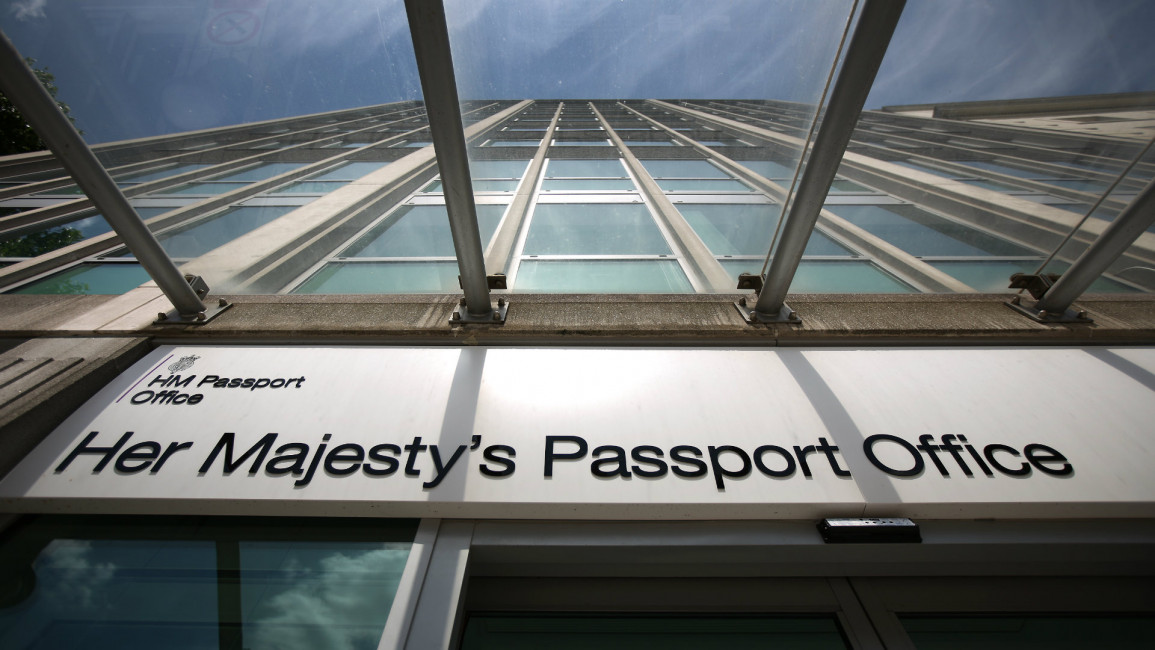UK immigration law puts Lebanese love story on hold
UK immigration law puts Lebanese love story on hold
UK immigration policy is forcing thousands of couples to choose between a life apart or a life in exile. It is the monthly income or the savings in the bank that determine if they can live together in the UK.
4 min read
Even getting to the door can be a lengthy process (Getty)
Layla Totah is currently living a life of limbo in Cyprus, trapped in a bureaucratic quagmire of visas.
"It's all about money," she said.
Tough immigration legislation has forced Toteh, a British citizen born and bred in the UK, to choose between living apart from her Lebanese husband of four years or living in exile from home.
For now she has chosen the latter.
| It boils down to one word: control. People want government to have control over the numbers of people coming here - David Cameron |
Layla's husband, Moe Ali Nayal, is a journalist and writer and had his application for a UK spouse visa refused. Five consecutive tourist visa requests have also been declined.
"The whole process is demoralising. We have been together for five years, been married for four," he says. "This has completely broken the flow of our life and put everything on pause until an unknown date in the future."
Pay up or stay out
The backbone of the new regulations is a minimum income requirement of £18,600, calculated by the migration advisory committee as the least you would need to not require income-related benefits (excluding housing costs).
When Layla moved back to the UK in August 2013, Moe immediately sent in his application. The couple were confident that because Layla had a job as a teacher, owned a flat in London and had savings in the bank they would be successful.
They were wrong.
Sticking to the letter of the law, Layla needed to prove six months of earnings before submitting the application, regardless of her financial security. Moe's application was deemed flawed and rejected on a technicality.
The situation would be different if Layla could prove she had more than £60,000 cash deposits in the bank.
The couple are currently living in a small farmhouse in Cyprus surviving off freelance work and the rent from Layla's flat in London.
"We are surviving but we can't entertain the idea of starting a family now although we really want to. I am 36, Moe is 32. We are running out of time," said Layla.
Returning to Lebanon is an option but with insecurity and a crumbling state it is not where the couple want to start their family.
"It is unusually hostile there now. There is an unspoken agreement that the security services are dysfunctional so everyone is taking it into their own hands and getting guns," said Moe. "Lebanon doesn't make sense anymore."
Basic services are crippled. Beirut suffers up to 10 hours a day of power cuts and water shortages are so severe that restaurants are pumping saline sea water.
A hostile debate
The immigration debate in the UK is becoming increasingly febrile. The popular rise of the anti-immigration Ukip party has forced David Cameron, the prime minister, to reassess policy and, as a consequence, the rhetoric and legislation coming from government has changed.
Cameron recently said: "People have understandably become frustrated. It boils down to one word: control. People want government to have control over the numbers of people coming here and the circumstances in which they come, both from around the world and from within the EU."
Measures introduced recently have given the UK some of the toughest immigration rules in Europe.
Headlines in the popular press, such as "Migrant family of nine get house and benefits in three weeks" and "Ban benefits for five years to halt tide of migrants" are a reflection of the nature of the debate.
EU citizens who are free to live and work in the UK are not constrained by the same stipulations keeping Moe and Layla in exile. Under an EU directive of 2004 relating to freedom of movement, EU citizens can bring dependent relatives - including those from outside Europe - to settle in the UK without any restrictions.
"I educate the youth of Britain and give back to my community but can't bring my husband to live with me. The way he is treated, the way we are treated, makes me ashamed to be British," said Layla.
A citizen's worth
Controversy around this particular piece of legislation is the idea that money alone can buy the right for a married couple to live together.
"I mean how many people just have a spare 60 grand sitting in cash?" said Layla.
The other route in - an annual income of £18,600 - instantly disqualifies 43 percent of British men and 57 percent of women from bringing in a spouse.
Moe and Layla hope some inheritance assets within Layla's family can be sold and the proceeds put in her name. If she holds upwards of around £60,000 in her account for over six months then that may suffice.
"I'm hopeful, but I won't believe it until I see it," said Moe. "I've been let down too many times before."
Along with thousands of other couples their fate and the potential choice of a life apart or a life in exile remains in the balance.



